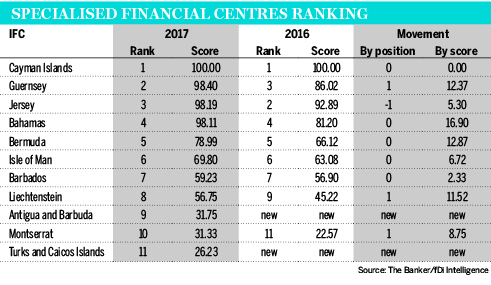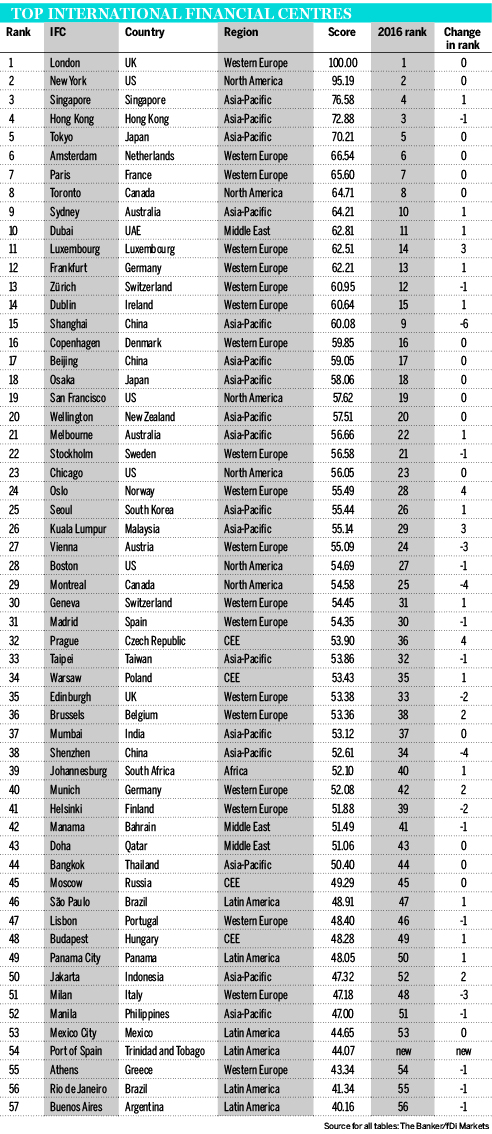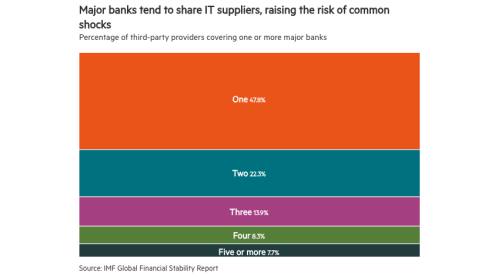In the whirlwind of political elections and policy changes of the past year, from Brexit talks in Europe to the rollback of the Dodd-Frank Act in the US, it is perhaps reassuring to see that international financial centres (IFCs) across the world held steady.
London remains the leading hub, offering a still unbeatable combination of size and international appeal. It continues to attract, as well as generate, the largest number of foreign direct investment projects in financial services: 232 and 532, respectively, for the four years to the end of 2016. It hosts the biggest outstanding volumes of international debt securities, based on the issuer’s country of residence ($2964bn) and a healthy 18.83% ratio of foreign listings of the total floating on its stock market.
Furthermore, the city’s financial services cluster is expanding, with 1208 new firms launching operations in London between June 2016 and early May 2017, according to data provider Dun and Bradstreet, bringing the total to 49,185.
New York in profit
In second place, New York continues to impress for the size of its capital markets and the profitability of its banks. Its largest banks – the 11 large enough to be included in The Banker’s 2017 Top 1000 World Banks ranking – closed 2016 with pre-tax profits of $88.68bn, a figure more than four times that of London. While only nine lenders were included in the banking analysis of the UK hub (the number of London-based Top 1000 banks), their total assets were only marginally smaller than New York’s, making the profitability comparison all the more relevant.
Singapore also performed well and improved its ranking, overtaking Hong Kong to come in in third place. Among the city-state’s distinctive attributes are a high-quality regulatory environment – the best of all IFCs, according to the World Bank, which considers financial and investment freedoms among many other indicators in its assessment. An overall good environment for businesses continues to attract solid numbers of FDI.
While Shanghai remains China’s top financial hub, it has dropped to 15th place in the ranking, its overall score affected by more modest stock trading volumes, according to the World Federation of Exchanges.
Further down the list, Oslo and Prague jumped up four places, to 24th and 32nd positions, respectively. Comparing the two centres, the Norwegian hub comfortably surpasses its eastern European neighbour by size, but Prague has a more international stock market.
In Latin America, São Paulo still leads its regional peers comfortably. As Brazil continues to be rocked by political scandals and is only now emerging from recession, the number of financial services firms based in the country shrank marginally from last year. São Paulo, however, remains the largest financial services cluster in the world, with 59,346 companies. Furthermore, thanks to improving macroeconomic data, profits at its largest banks have grown significantly.
Making its debut in 54th place, Trinidad and Tobago’s Port of Spain is the only Caribbean financial centre in the ranking. The Cayman Islands once more leads the specialised IFCs list, followed by Guernsey and Jersey.
Methodology
The Banker’s ranking of IFCs is based on data ranging from financial markets indicators to economic potential to business environment factors. A total of 82 indicators have been used in our analysis. The ranking focuses on the level of international business and the value offered to institutions seeking to expand their international operations. In recognition of the fact that data for specialised financial centres is seldom consistent with that for mainland financial centres, The Banker has surveyed each specialised IFC and has compiled a separate table using information relevant to these locations. Publicly available data sources were used as well as The Banker Database and fDi Markets.









